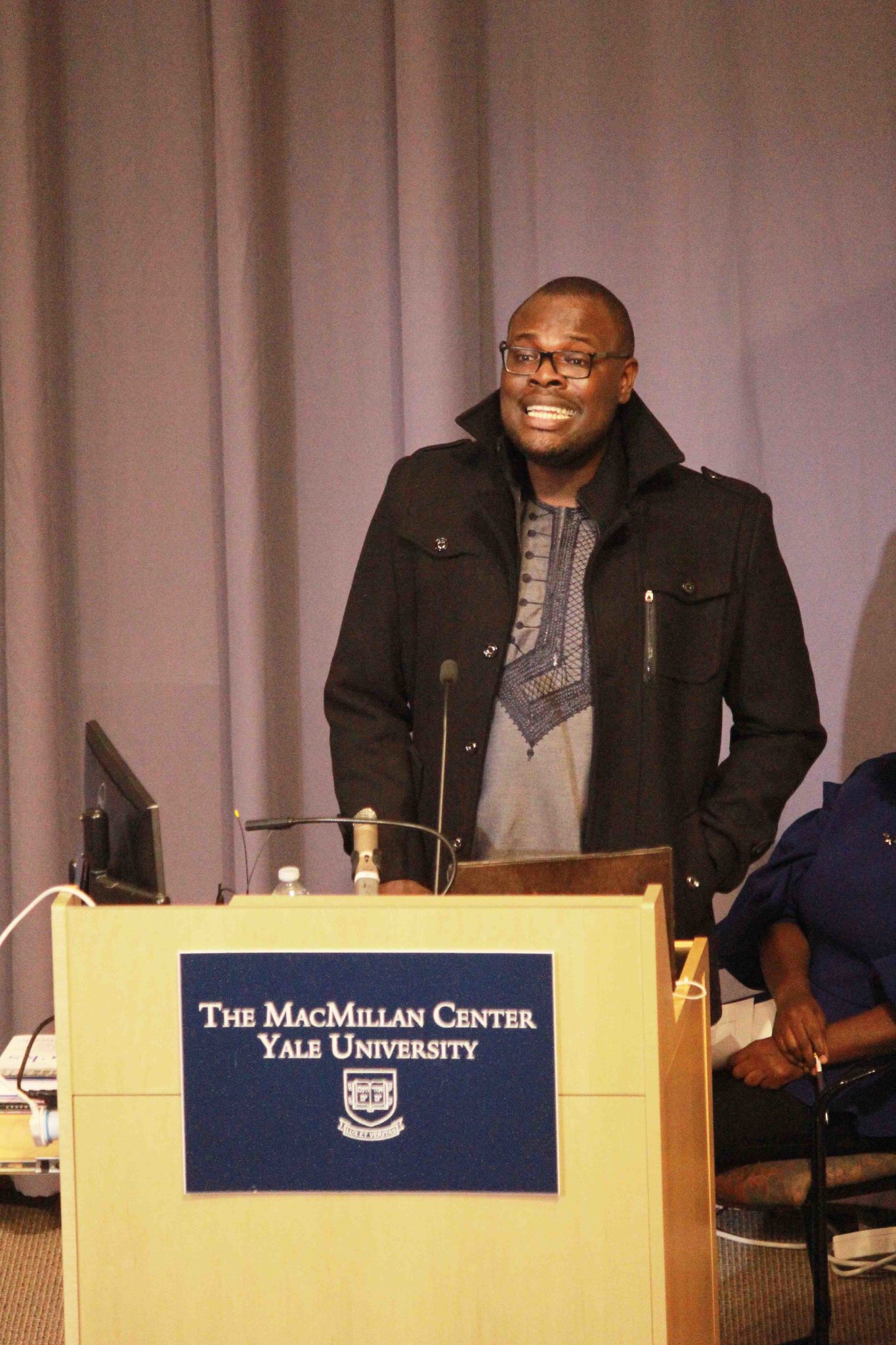
Chude Jideonwo, a Nigerian journalist, lawyer and 2017 Yale Greenberg World Fellow, drew parallels between discontent with African governments and recent global events like Brexit at a talk Wednesday evening.
The event, which took place in Luce Hall, was hosted by the Council on African Studies and titled “How To Win Elections in Africa” after Jideonwo’s new book of the same name. After he kicked off the event by reading and discussing excerpts from his book, a group of scholars discussed problems of governance in Rwanda and Kenya in a panel discussion titled “Calm in Rwanda, Chaos in Kenya.”
“People are angry, but they are angry about their governments,” Jideonwo read from his book. “[Anger] is the number one driver of electoral choices anywhere in the world as we speak. Anger, fairly and squarely, is targeted at governments and politicians.”
He argued that this anger is not unique to Africa and, in other parts of the world, has led to anti-establishment backlash, such as the election of Donald Trump and Brexit.
But not all establishments are bad, Jideonwo said. People outsource executive decisions to these establishments, expecting them to make proper decisions, and often these establishments can be effective, as in Botswana, he said. If they do fail, though, it is not the fault of the people, and it is within their rights to challenge them, Jideonwo added.
“If the establishments don’t like it, they need to start behaving themselves,” he said.
In the following panel discussion, participants addressed the question of what constitutes a proper establishment.
In Rwanda, President Paul Kagame has held power since 2000, effectively creating a one-party system, said panelist Lorma Solis, prompting a discussion about whether the country still qualifies as a democracy. Solis, an expert in African politics, argued that it does.
“As much as I want to believe that democracy is what we have in the West, who are we to say what should be happening in Rwanda?” the panelist said. “The people did ask him to stay.”
But Yale political science professor Jeremy Seekings, also a panelist, said otherwise, contending that while the Kagame government “might be doing many things that we approve of, there’s no democratic playing field.”
As for Kenya, Seekings said the country’s political climate is a perfect example of what Jideonwo’s comments about anger.
“There is very real discontent in how elites in both parties have treated the state,” he said. “It’s a superficially democratic playing field, but it’s clearly not free and fair.”
Bishop of the Roman Catholic Diocese of Sokoto and a member of the committee for electoral reform in Nigeria Matthew Kukah, who gave a small talk during the event, said that corruption often plagues elections in African countries, destabilizing African governments like those in Rwanda and Kenya.
But Lorna Solis, a panelist and a 2017 Yale Greenberg World Fellow, expressed hope that these countries can overcome corruption.
“I believe that with social media and with Twitter and all these incredible technologies coming about, [the youth] will have a stronger voice than ever,” Solis argued. “With that said, as long as corruption is rampant in the government, it’s going to be a very challenging uphill battle.”
Jideonwo agreed that Africa’s youth can use social media to improve the political climate of the continent.
“[Social media] is revolutionizing the conversations that people are having … there is ascendant potential,” he said.
Jideonwo is the co-founder and managing partner of RED, a Nigerian media and communications company that encourages young Africans to take an active part in improving the communities in which they live. Through RED, he has done consulting work for global brands like Facebook and Uber and has run communications for three successful African presidential campaigns, including two consecutive successes in Nigeria. His book, “How to Win Elections in Africa: Parallels to Donald Trump,” will become available on Nov. 11.
Jake Kalodner | jake.kalodner@yale.edu







